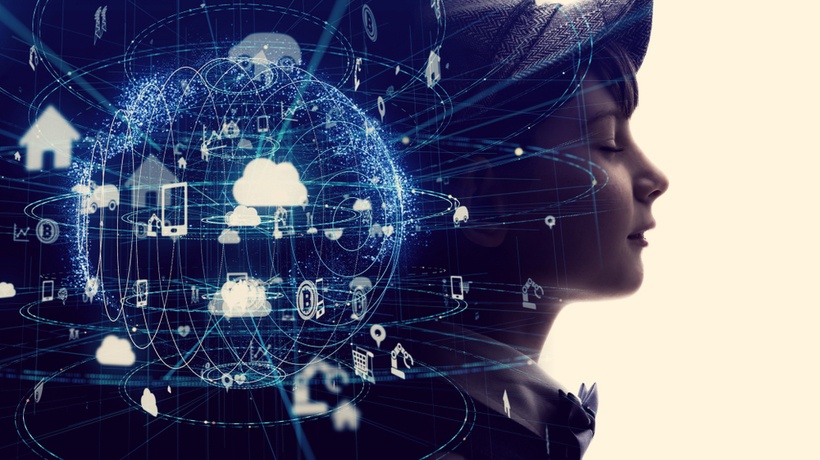The Future of Online Education
 The landscape of education has undergone a radical transformation over the past few decades. With the advent of the internet, traditional learning paradigms have been disrupted, giving rise to online education platforms that are reshaping how knowledge is disseminated and acquired.
The landscape of education has undergone a radical transformation over the past few decades. With the advent of the internet, traditional learning paradigms have been disrupted, giving rise to online education platforms that are reshaping how knowledge is disseminated and acquired.
The growth of online education is not merely a trend but a fundamental shift in the way we think about learning.
The Evolution of Learning Platforms
Online education platforms, from massive open online courses (MOOCs) to personalized learning environments, have democratized access to education.
These platforms have allowed learners from diverse backgrounds and geographies to access high-quality education that was once reserved for a privileged few.
As technology continues to advance, the capabilities of these platforms are expanding, making education more accessible, flexible, and tailored to individual needs.
However, the future of online education goes beyond accessibility. It is about creating learning experiences that are immersive, engaging, and aligned with the demands of the modern world.
The integration of artificial intelligence, machine learning, and virtual reality into online education platforms is already beginning to change the way we learn.
These technologies are enabling the creation of personalized learning paths, real-time feedback, and interactive simulations that enhance the learning experience.
The Role of Artificial Intelligence in Personalized Learning
Artificial Intelligence (AI) is poised to play a pivotal role in the future of online education. By leveraging AI, educational platforms can create personalized learning experiences that cater to the unique needs and learning styles of each student.
Personalized learning, supported by AI, ensures that students are not just passive recipients of information but active participants in their educational journey.
AI algorithms can analyze vast amounts of data to identify patterns in student behavior, performance, and preferences. This data-driven approach enables the creation of customized learning paths that adapt to the pace and level of each learner. For instance, if a student struggles with a particular concept, the AI system can provide additional resources or alternative explanations to help the student grasp the material.
Conversely, if a student excels in a certain area, the system can introduce more challenging content to keep the learner engaged.
Moreover, AI-driven chatbots and virtual tutors are becoming increasingly sophisticated, offering real-time assistance and guidance to students. These tools not only provide answers to queries but also help students stay on track with their learning goals by offering reminders, tips, and encouragement.
As AI technology continues to evolve, we can expect even more advanced applications that will further enhance the personalization and effectiveness of online education.
The Impact of Virtual Reality on Immersive Learning
Virtual Reality (VR) is another technology that is set to revolutionize online education by creating immersive learning experiences that go beyond traditional methods. VR allows students to enter a simulated environment where they can interact with objects, scenarios, and other learners in ways that are not possible in a physical classroom or through a standard online course.
For example, medical students can practice surgeries in a virtual operating room, engineering students can build and test structures in a virtual environment, and history students can explore ancient civilizations through virtual time travel. These immersive experiences enable students to apply theoretical knowledge in a practical context, which enhances understanding and retention.
The use of VR in online education also has the potential to bridge the gap between theory and practice in fields where hands-on experience is crucial. By providing a safe and controlled environment for experimentation and practice, VR can help students develop the skills and confidence needed to excel in their chosen fields.
Furthermore, VR can facilitate collaborative learning by allowing students from different parts of the world to meet in a virtual space and work together on projects. This global collaboration not only broadens students' perspectives but also prepares them for the increasingly interconnected world of work.
The Challenges and Opportunities of the Future
While the future of online education is promising, it is not without challenges. One of the main concerns is the digital divide, which refers to the gap between those who have access to digital technologies and those who do not. As online education becomes more prevalent, there is a risk that students from disadvantaged backgrounds may be left behind due to lack of access to reliable internet, devices, or digital literacy skills.
To address this issue, governments, educational institutions, and private organizations must work together to ensure that all students have equal access to the tools and resources needed for online learning. This includes investing in infrastructure, providing affordable internet access, and offering training programs to enhance digital literacy.
Another challenge is the need to maintain the quality and credibility of online education. As the number of online courses and degrees continues to grow, it is essential to establish rigorous standards and accreditation processes to ensure that the education provided is of high quality and recognized by employers and academic institutions.
Despite these challenges, the future of online education presents numerous opportunities. The ability to learn anytime, anywhere, and at one's own pace is a powerful advantage that can accommodate diverse learning needs and lifestyles. Moreover, the global reach of online education means that students can access courses and instructors from around the world, enriching their learning experience with diverse perspectives and expertise.
As technology continues to advance, the possibilities for online education are limitless. From AI-driven personalization to VR-based immersive learning, the future holds exciting prospects for students and educators alike. By embracing these innovations and addressing the challenges that come with them, we can create a future where education is not only accessible to all but also tailored to the needs of each individual learner.






































